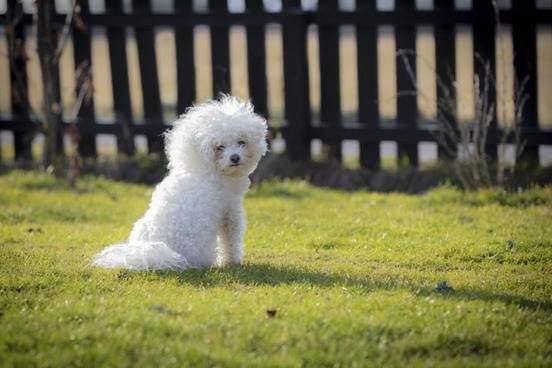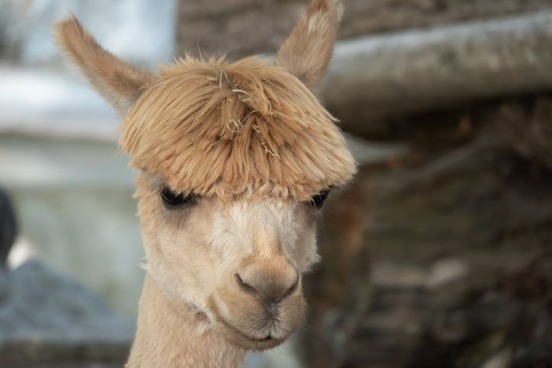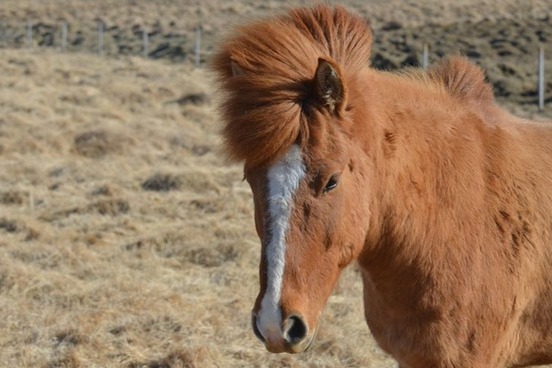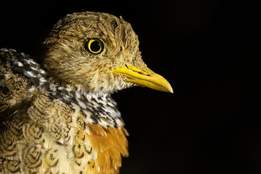
Chevelure
noun : a head of hair
No one says "Zowie! What a chevelure on that kid!" But that shouldn't stop you from emitting such an exclamation upon seeing a child with an arresting head of hair.
Chevelure has been used in English since the 15th century, when it was borrowed from the French who'd had the word since the days of Old French centuries before, but in the form chevelëure. Chevelëure, in turn, had its genesis in the Late Latin capillatura, from Latin capillatus, meaning "having long hair." These Latin words may remind you of capillary, and with good reason: the name of that smallest kind of blood vessel also comes ultimately from capillus, meaning "hair."
Disheveled is also a relation of chevelure, which we think lends some potency to other underused utterances along the lines of "That ride in the cabriolet was invigorating, but it left my chevelure sorely disheveled." (We are only trying to help.)

Frowze
noun : frizzed hair specifically : a frizzed wig
Though terribly obscure, frowze is such an evocative term that we feel its obscurity amounts to a kind of deprivation from which English speakers unnecessarily suffer. As your humble dictionary, we would like to suggest that if your hairdo is a mass of tight curls perhaps you could refer to it as your frowze. And if you could Insta that, please, there might be hope. #frowze #nofilter

Trichologist
noun : a person who specializes in hair and scalp care broadly : a person whose occupation is the dressing or cutting of hair : a hairdresser
While the term trichologist typically refers to someone who studies and treats hair and scalp ailments, it is also sometimes applied to those whose job is to dress and cut hair, which means most of us have occasion to use the word trichologist and simply let the opportunity pass us by. You, dear reader, can do better.
Trichologist has the close lexical relation you'd expect: trichology refers to the scientific study of hair. The first element in each traces back to the Greek trich- or thrix, meaning "hair."

Glabrous
adjective : smooth especially : having a surface without hairs or projections
It's not a typical usage, but technically there's nothing stopping you from using glabrous to describe a gloriously hair-free pate, as in "The glabrous among us are spared the agony of a disheveled chevelure."
Glabrous has been in use since the first part of the 17th century, and while it is now primarily used by those engaged in such fields as horticulture and botany to describe smooth leaves and the like, mammals may be so characterized as well. For those of you who prefer more conventional mammalian use, you can apply the word especially to areas of skin that do not grow hair, such as the soles of the human feet.
For anyone who feels that glabrous just isn't enough, we have also glabrescent, which means "glabrous or tending to become glabrous." Both words come from Latin glabr-, glaber, meaning "smooth, bald."

Lovelock
noun : a long lock of hair variously worn (as over the front of the shoulder) especially by men in the 17th and 18th centuries
Sometimes a change in fashion results in staggering lexical loss. We can't say that's actually the case with lovelock, but it is a lovely sounding word that no one uses anymore. (It does have some function as a surname, so there's that.) Lovelock is far more romantic-sounding than the similar earlock, which has referred to a curl of hair hanging in front of the ear since the earliest days of the English language. We don't bemoan its relative absence from the living language nearly so much.

Soap Lock
noun 1 : a lock of hair plastered down with soap —usually used in plural 2 : a person wearing a soap lock
And while we are on the topic of locks of various kinds, we would be remiss not to address the word soap lock. This 19th century innovation has a sniff of disapproval to it. The following example is not untypical:
We have tens of thousands of young men doing nothing. There must be work somewhere if they will only do it. They stand round, with soap locks and scented pocket-handkerchiefs, tipping their hats to the ladies; while, instead of waiting for business to come to them, they ought to go to work and make a business.
— T. DeWitt Talmage, Around the Tea-Table, 1847
The lock that refers to a tuft, tress, or ringlet of hair is the language's own, tracing back to Old English locc. It shares an ancient ancestor with the Old High German loc, also meaning "lock."

Frisette
noun : a fringe of hair or curls worn on the forehead by women
It's not our fault that people don't take advantage of the word frisette. It's an option that could in theory bring some unity to the bangs/fringe divide that sows such enmity between the Americans with their bangs and the British with their fringes. (Note: We know of no significant enmity on this front.)
Despite appearances, frisette and fringe are unrelated etymologically. The former comes from the French friser, meaning "to curl," while fringe comes from Latin fimbria, "border, fringe."

Quiff
noun : a prominent forelock
The word quiff is mostly used in British English, and its meaning in that dialect has changed since its earliest use in the late 19th century. While Merriam-Webster's dictionaries deem the quiff merely "a prominent forelock," the Oxford English Dictionary goes into more detail, telling us that the term initially referred to a forelock whose prominence is notable in the fact of its being plastered down onto the forehead, and later that the prominence so identified is notable in its being brushed up and back from the forehead. No one knows where the word comes from, but we do appreciate its SCRABBLE playability. It is also not unpleasant to say.





